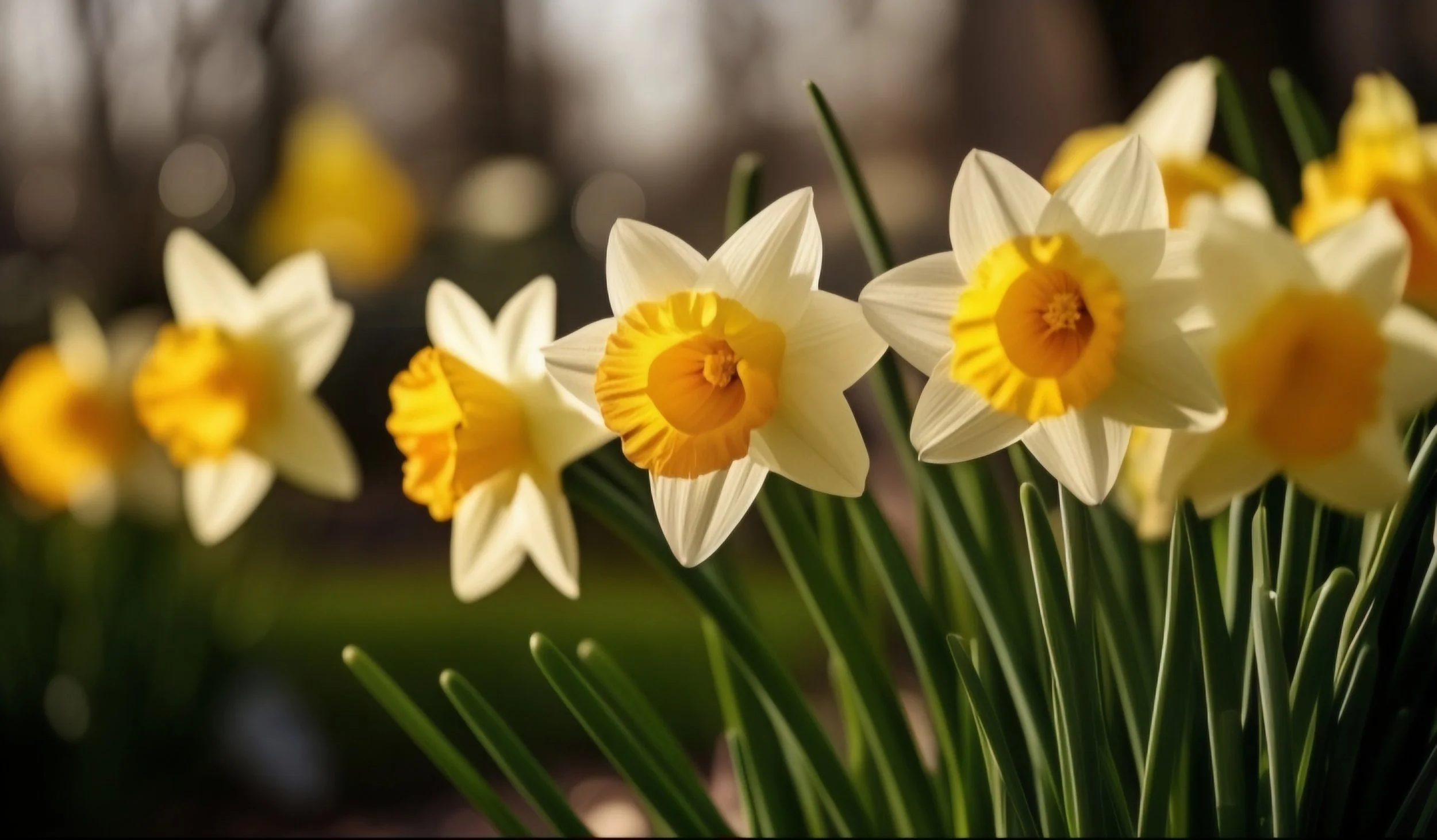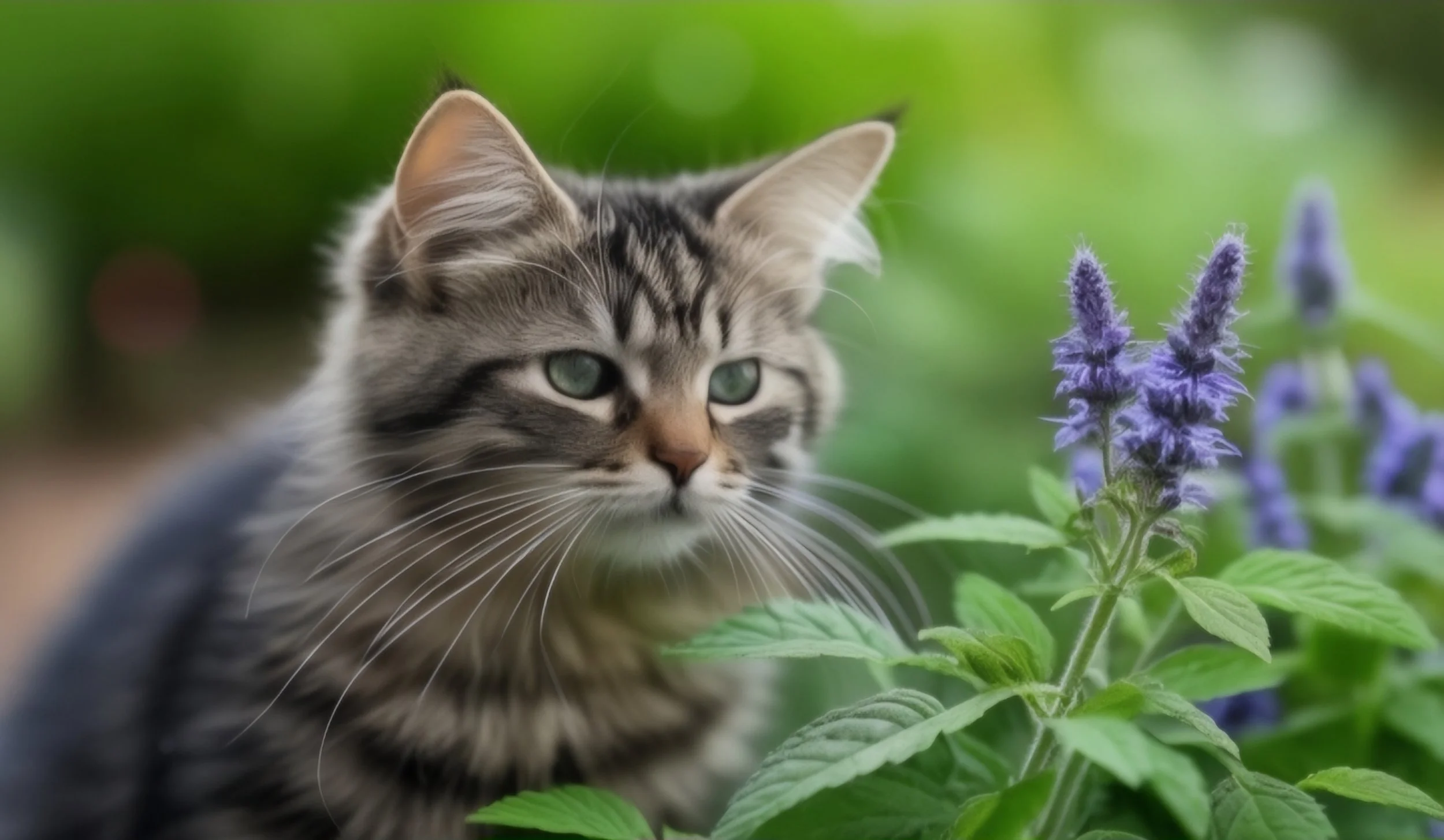Say Goodbye to Rodents: 10 Must-Have Plants to Beautify and Protect Your Home Garden
Gardening is fun and refreshing, there is no doubt about that. However, often time rodents can be real pain to deal with. If they attack your home garden, they not only damage the plants but also creates unsanitary conditions. From mice and rats to squirrels and chipmunks, these small mammals can wreak disaster in green spaces.
Fortunately, nature offers a solution, and you don’t always need to buy rodent repellent chemicals. Certain plants have natural properties that repel rodents which makes them ideal additions to your favorite garden. However, before adding any plants you need to know about their growth requirements, pest resistance, pet safety, and suitable fertilizers to help you maintain a beautiful and rodent-free backyard. Here are the ten plants that I have come across over the years and always grow them in my home garden in various seasons.
10 Plants to Repel Rodents and Protect Your Home Garden
1. Mint (Mentha): Mint is not only a refreshing herb for culinary uses but also a powerful natural rodent repellent due to its strong scent, which rodents find highly unpleasant. This adaptable plant thrives in both garden beds and containers which makes it easy to incorporate into any garden layout. Additionally, mint's rapid growth and vibrant green foliage add a lush, aromatic touch to your backyard and enhances both its beauty and functionality.
· Lighting: Full sun to partial shade.
· Water Requirements: Regular watering; prefers moist soil.
· Pest Resistance: Generally pest-resistant, but can attract aphids and spider mites.
· Pet Safety: Non-toxic to pets.
· Temperature: Thrives in temperatures between 55-70°F (13-21°C).
· Type of Fertilizer: Balanced, all-purpose fertilizer (10-10-10 or similar). Apply once a month during the growing season.
Mint
2.Lavender (Lavandula): Lavender boasts fragrant flowers that delight humans while effectively deterring rodents with their powerful aroma. This hardy plant thrives in sunny spots with well-drained soil which makes it a low-maintenance addition to your garden. Beyond its rodent-repelling properties, lavender adds a splash of color and a calming scent and enhances the beauty of your outdoor space.
· Lighting: Full sun.
· Water Requirements: Low to moderate; prefers well-drained soil.
· Pest Resistance: Highly resistant to most pests and diseases.
· Pet Safety: Non-toxic to pets.
· Temperature: Prefers temperatures between 60-80°F (15-27°C).
· Type of Fertilizer: Low-nitrogen fertilizer or a balanced fertilizer (5-10-5). Apply in early spring and again in mid-summer if needed.
Lavender
Read More/Relevant Topics:
Poor Soil? Don’t Worry: 12 Magnificent Colorful Flowers That Thrive in Poor Soil
Gardener's Guide: How to Tackle Top 10 Common Vegetable Pests and Diseases
Dr. Gardener Identifies: Top 10 Flower Pests and Diseases & How to Tackle Them
Home Gardening – 12 Vegetables that are Easy to Grow yet Nutritious
3.Rosemary (Salvia rosmarinus): Rosemary is an aromatic herb with a robust scent that naturally repels rodents. They are ideal for sunny garden spots and thrive in well-drained soil. They require minimal watering which makes it a low-maintenance choice for gardeners. Beyond its pest-repelling qualities, rosemary adds culinary value and a touch of evergreen beauty to your garden all year-round.
· Lighting: Full sun.
· Water Requirements: Low; prefers dry to moderately moist soil.
· Pest Resistance: Resistant to most pests; can occasionally attract aphids and spider mites.
· Pet Safety: Non-toxic to pets.
· Temperature: Thrives in temperatures between 55-80°F (13-27°C).
· Type of Fertilizer: Balanced, all-purpose fertilizer (10-10-10). Apply once in early spring.
Rosemary
4.Daffodils (Narcissus): Daffodils are not only a cheerful springtime addition to any garden but also a natural rodent deterrent due to their toxic bulbs. These vibrant flowers thrive in full sun to partial shade and well-drained soil. It provides a burst of color while protecting your garden from unwelcome pests.
· Lighting: Full sun to partial shade.
· Water Requirements: Moderate; requires well-drained soil.
· Pest Resistance: Highly resistant to pests and rodents due to their toxicity.
· Pet Safety: Toxic to pets if ingested.
· Temperature: Grows well in temperatures between 50-70°F (10-21°C).
· Type of Fertilizer: Balanced, slow-release bulb fertilizer (5-10-10). Apply at planting and again when shoots first emerge in spring.
Daffodils
5.Marigolds (Tagetes): Marigolds are a gardener's best friend. They release a distinct scent that effectively repels a variety of pests, including rodents. These bright and hardy flowers flourish in full sun and well-drained soil. They add vibrant color and natural pest control to your garden.
· Lighting: Full sun.
· Water Requirements: Moderate; prefers well-drained soil.
· Pest Resistance: Highly pest-resistant; repels various insects and rodents.
· Pet Safety: Non-toxic to pets.
· Temperature: Prefers temperatures between 70-75°F (21-24°C).
· Type of Fertilizer: Balanced, all-purpose fertilizer (10-10-10). Apply every 4-6 weeks during the growing season.
Marigolds
6.Alliums (Allium spp.): Alliums are not only visually striking with their globe-like blooms but also highly effective at repelling rodents due to their strong and pungent odor. They thrive in full sun and well-drained soil. These plants are both decorative and functional and provides natural pest control throughout your garden.
· Lighting: Full sun.
· Water Requirements: Low to moderate; prefers well-drained soil.
· Pest Resistance: Highly pest-resistant due to strong odor.
· Pet Safety: Non-toxic to pets in small quantities, but large quantities can cause issues.
· Temperature: Thrives in temperatures between 50-70°F (10-21°C).
· Type of Fertilizer: Balanced, slow-release fertilizer (10-10-10). Apply at planting and once during the growing season.
Alliums
7.Catnip (Nepeta cataria): Catnip is a dual-purpose plant that attracts feline friends while effectively repelling rodents with its strong scent. Easy to grow in full sun and well-drained soil, catnip adds a touch of greenery and a natural pest control solution to your garden. By planting catnip, you can enjoy the playful visits of neighborhood cats while keeping your garden free from pesky rodents.
· Lighting: Full sun to partial shade.
· Water Requirements: Moderate; prefers well-drained soil.
· Pest Resistance: Generally pest-resistant.
· Pet Safety: Non-toxic to pets.
· Temperature: Grows well in temperatures between 55-85°F (13-29°C).
· Type of Fertilizer: Balanced, all-purpose fertilizer (10-10-10). Apply once in early spring and again in mid-summer if needed.
Catnip
8.Sage (Salvia officinalis): Sage is an aromatic herb known for its culinary uses and its ability to repel rodents with its strong fragrance. This hardy plant thrives in full sun and well-drained soil, making it a low-maintenance addition to any garden. By incorporating sage, you not only enhance your garden's aesthetic and culinary potential but also create a natural barrier against rodent attacks.
· Lighting: Full sun.
· Water Requirements: Low; prefers dry to moderately moist soil.
· Pest Resistance: Highly pest-resistant.
· Pet Safety: Non-toxic to pets.
· Temperature: Prefers temperatures between 60-70°F (15-21°C).
· Type of Fertilizer: Balanced, all-purpose fertilizer (10-10-10). Apply once in early spring.
Sage
9. Garlic (Allium sativum): Garlic is a powerful natural repellent, with its pungent smell that is very effective in deterring rodents from entering your garden. They are easy to grow in full sun and well-drained soil. Garlic serves dual purposes by providing both culinary benefits and robust pest control.
· Lighting: Full sun.
· Water Requirements: Moderate; prefers well-drained soil.
· Pest Resistance: Highly pest-resistant due to strong odor.
· Pet Safety: Non-toxic to pets in small quantities, but large quantities can cause issues.
· Temperature: Thrives in temperatures between 50-75°F (10-24°C).
· Type of Fertilizer: Balanced, slow-release fertilizer (10-10-10). Apply at planting and again in early spring.
Garlic
10. Eucalyptus (Eucalyptus spp.): Eucalyptus is renowned for its strong aromatic leaves that serve as an effective deterrent against rodents. They thrive in full sun and well-drained soil. They can be both bush and trees. Eucalyptus trees add both height and visual interest to your garden while providing natural pest control.
· Lighting: Full sun.
· Water Requirements: Low to moderate; prefers well-drained soil.
· Pest Resistance: Highly pest-resistant due to strong oils in leaves.
· Pet Safety: Toxic to pets if ingested.
· Temperature: Prefers temperatures between 65-75°F (18-24°C).
· Type of Fertilizer: Balanced, all-purpose fertilizer (10-10-10). Apply once in early spring and again in mid-summer if needed.
Eucalyptus
Disclaimer:
This article is prepared by PhoenixPhantom and RriadantRaiser and the information is for general informational purposes only. While we aim to provide accurate and up-to-date content, we make no warranties about the completeness, accuracy, or reliability of the information provided. Gardening involves working with natural elements and may present risks, including dealing with pests, allergies, and plant toxicity. Always exercise caution and consult with a professional or conduct further research before introducing new plants to your garden, especially if you have pets or young children.
This article contains recommendations for plants believed to repel rodents, but individual results may vary based on environmental factors, rodent species, and local climate conditions. We do not guarantee complete rodent elimination. The author and publisher are not responsible for any adverse effects or consequences from using any suggestions, products, or procedures described in this article. By using this information, you agree that the author and publisher will not be liable for any loss or damage arising from the use of this article.











